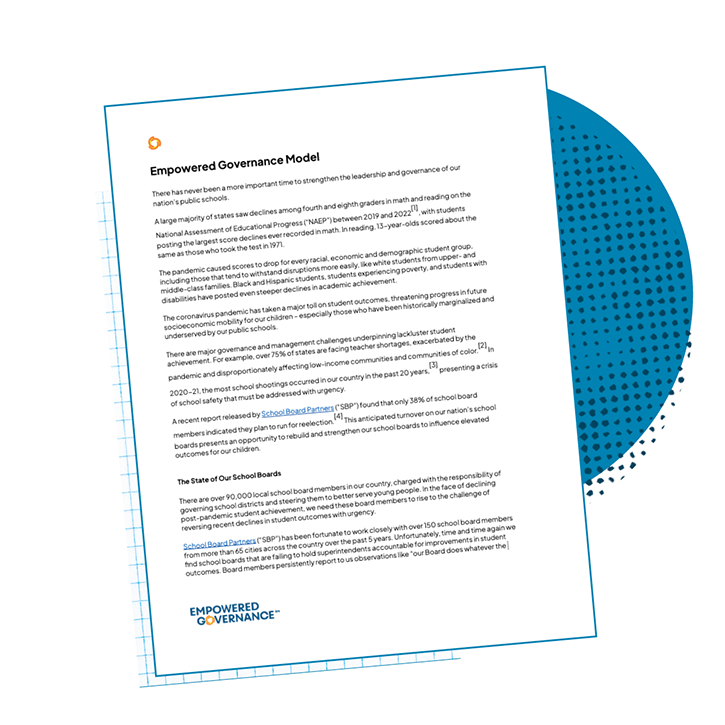Policy Toolkit
Additional Governance Tools
This section includes a range of policies designed to support the broader governance responsibilities of school boards. From instructional quality and literacy programs to labor relations and school closure protocols, these tools equip boards to navigate critical issues with clarity, equity, and accountability—ensuring all decisions are made in the best interest of students and staff.
Instruction
High-Quality Instructional Materials Policy
This policy seeks to reinforce alignment of district practices with research-based best practices regarding selection and implementation of instructional materials.
Literacy Programs Policy
This policy provides minimum guidelines that ensure best practices in literacy instruction are implemented across the district, and provides accountability structures for ensuring all students are on the path to strong literacy outcomes.
Download the Policy PDF | DOC
English Learners Policy - (English)
The purpose of this policy is to ensure equitable access, achievement, and inclusion for all students identified as English learners (ELs), regardless of background or documentation status, by bolstering current standards of practice and systems of accountability.
English Learners Policy (Spanish)
Translated into Spanish.
Labor Relations Policy
This policy stipulates the Board’s minimum expectations regarding collective bargaining agreements and processes as they pertain to potential impacts on students, especially those who have been historically marginalized.
Labor Relations
Download the Policy PDF | DOC
School Closure
School Closure Policy
This policy governs the district’s process for school closures and consolidations, ensuring utilization of research-based best practices and thorough engagement of all key constituencies before finalizing these critical decisions.
Facilities
Vacant Property Policy
This policy governs the process of assigning a school program to a newly constructed or recently vacated building, ensuring a strategic, transparent and equitable process while maintaining repurposing priorities that are aligned with the district's mission.


